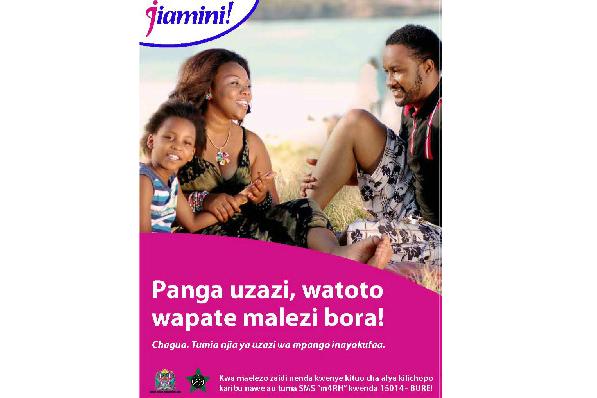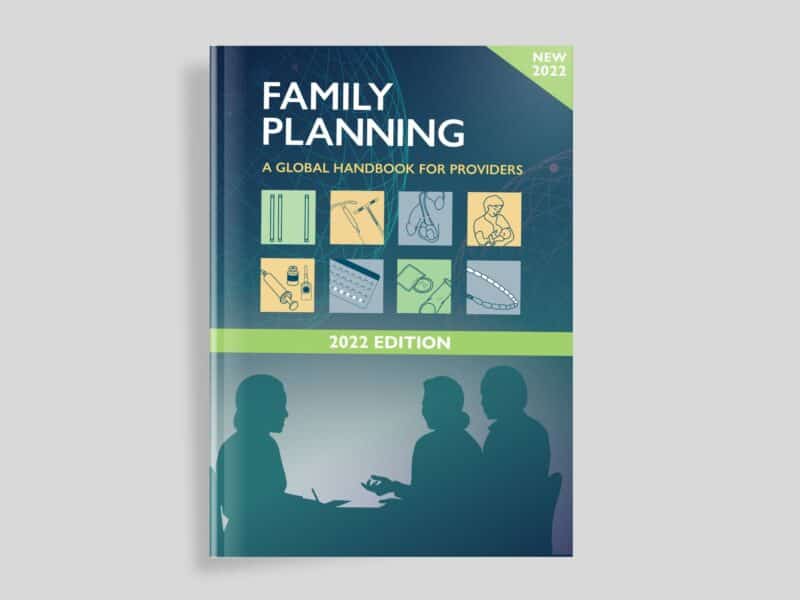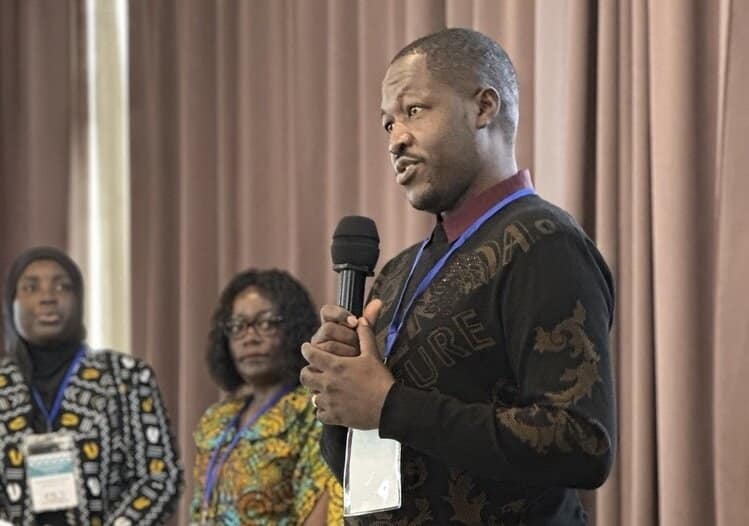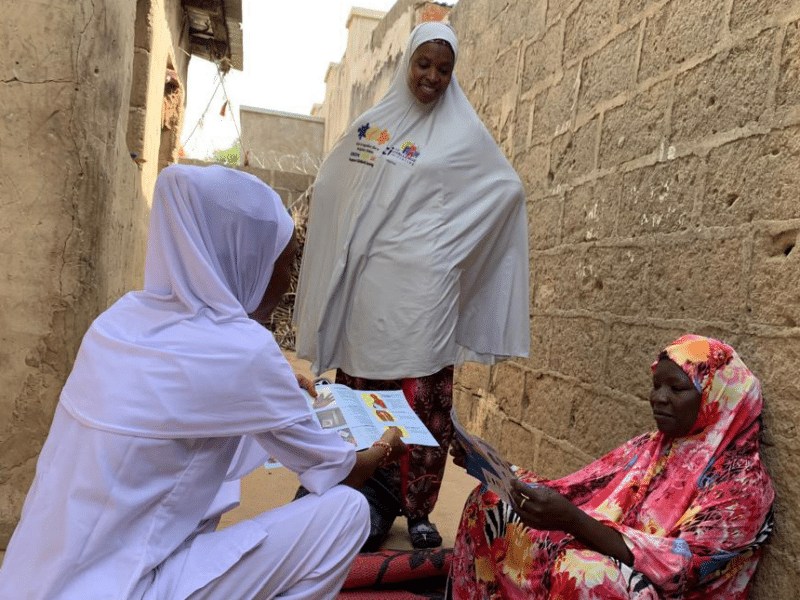New data from the Tanzania Capacity and Communication Project (TCCP) demonstrate that mobile technology has quickly become an essential source of important health information in Tanzania.
TCCP’s Jiamini! (“Be Confident!”) Campaign uses a text message platform to provide information about family planning methods and service delivery points. The campaign, which seeks to empower women to initiate use of modern family planning methods and encourages male support, publicizes the platform in radio spots, TV spots and print materials.
In the three months before the April 2012 launch of Jiamini!, the SMS platform – called Mobile for Reproductive Health and run by FHI 360 – averaged 4,000 to 5,000 hits per month. In the first month following the Jiamini! launch there were more than 75,000 hits. The platform received over 114,000 hits the next month. Data suggest that Mobile for Reproductive Health is reaching both men and women, the majority of whom are 24 years or younger.
Mobile for Reproductive Health text messages address permanent, long-acting and short-acting family planning methods. For example, an SMS about permanent FP reads: Permanent contraception for men (vacectomy) or women (sterilization) is a simple and safe surgery. Get it in hospital or clinic. It does not have effects on sexual feelings, appearance or ability.
An SMS platform is also being used by TCCP’s Tuko Wangapi? Tulizana (“How Many Are We? Settle Down.”) campaign to engage target audiences in a national discussion around concurrent sexual partnerships. The goal of Tuko Wangapi? Tulizana is to decrease concurrent sexual partners as a method to reduce new HIV infections. Launched in June 2012, the campaign received more than 10,000 text messages from listeners and viewers in its first month alone. For example, Tuko Wangapi? Tulizana has received text messages from listeners seeking information on HIV/AIDS, such as: Naomba mnipe usha uri jinsi, yakuji kinga na ukimwi. (Advice on how to protect myself from HIV Aids?) The campaign has generated such an overwhelming response that planning for phase two is underway much earlier than anticipated.
An SMS platform is essential to these effective and sustainable health campaigns because text messages are low-cost intervention tools. Furthermore, research has shown that there is growing use of mobile phones in developing countries like Tanzania, texting is prevalent in Tanzania on these phones, Tanzanians welcome and trust messages via text and they share these messages with their partners and friends.
The Tanzania Capacity and Communication Project is a five-year, USAID-funded project led by the Johns Hopkins Bloomberg School of Public Health Center for Communication Programs (JHU∙CCP). TCCP’s vision is a Tanzania where people take charge of their own health, thus creating healthy households where individual changes in health lead to healthier families and communities.





